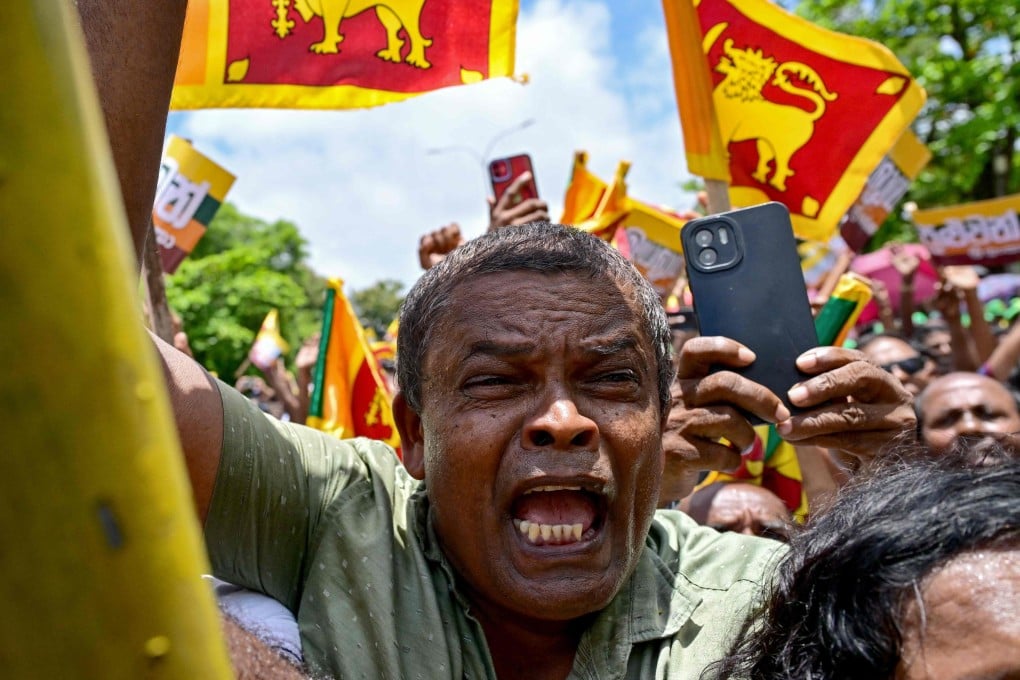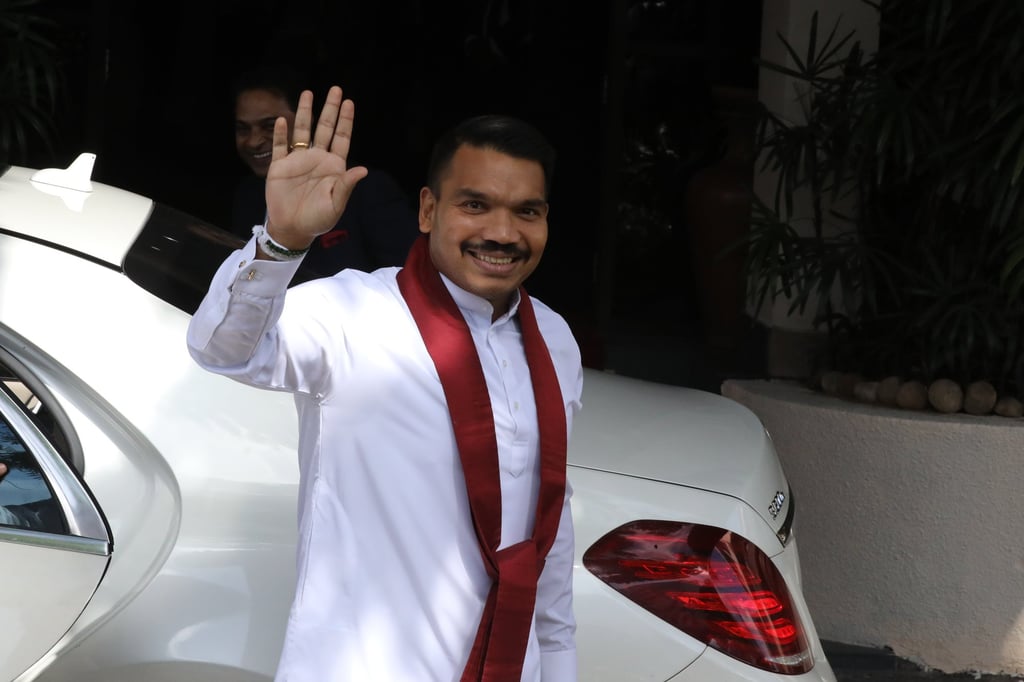Advertisement
China or India? Sri Lanka’s presidential election becomes a battleground for influence
- Sri Lanka’s September polls could prove to be a ‘game changer’ for its relations with its two most powerful neighbours, analysts say
Reading Time:3 minutes
Why you can trust SCMP

As candidates in Sri Lanka prepare for next month’s pivotal presidential election, analysts warn its future relations with India and China will hinge on the winner’s policies.
The race is on, with a diverse field of 39 candidates vying to lead the island nation out of its worst economic crisis in decades. It’s the country’s first presidential elections since the turmoil of 2022, which saw the once-dominant Rajapaksa political dynasty tumble from power amid mass protests and a crippling financial collapse.
Among the most closely watched contenders is Namal Rajapaksa, the 38-year-old scion of the former ruling clan. Representing the Sri Lanka People’s Front (SLPP), the son of popular wartime leader Mahinda Rajapaksa is seeking to restore his family’s legacy.

Other aspirants include incumbent President Ranil Wickremesinghe, contesting as an independent candidate instead of representing the United National Party (UNP) he has been associated with for close to five decades.
Advertisement
Sajith Premadasa, who split from the UNP in 2019, will represent Samagi Jana Balawegaya (SJB), while Anura Kumara Dissanayake of National People’s Power (NPP), and leftist Janatha Vimukthi Peramuna (JVP) are also candidates.
The winner will decide the economic direction of the nation, which is currently in the process of implementing structural changes under a US$2.9 billion International Monetary Fund programme secured following 2022’s historic default.
Advertisement
Analysts say the outcome of the polls could shift the country’s delicate geopolitical balancing act between its two regional powerhouse neighbours – especially if the NPP’s Dissanayake wins a majority.
With recent political surprises in the region – including Narendra Modi losing a majority in parliamentary elections and strained relations between Delhi and Dhaka after the fall of Sheikh Hasina - “India is obviously going to look at this election with very, very sharp eyes,” said Uditha Devapriya, chief analyst at Factum, a Sri Lanka-based foreign policy think tank.
Advertisement
Select Voice
Select Speed
1.00x